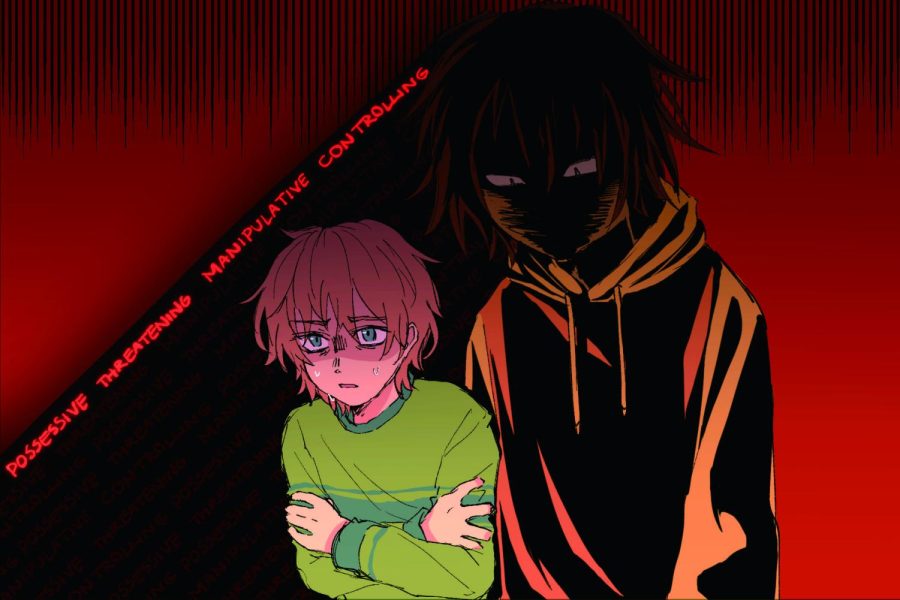Seeing signs of toxic relationships
Teens may stress over romance
A relationship is considered toxic when people talk down to their partners or make their partners feel unheard. Toxic relationships can make those affected feel confused and anxious.
An obligation rather than a relationship is how some people feel in a toxic relationship. There is often a lot of manipulation and control. Some may have to change things about themselves in order to stay in the relationship and prevent their partner from becoming upset.
If a relationship causes stress and anxiety, then it is toxic, said Mary Cooley, marriage and family therapist.
“If there’s a ton of insecurity or guilt-tripping by one person, if you feel like you can’t be yourself,then that classifies it as a toxic relationship,” Cooley said.
According to therapist Nathaniel Hope, being in a toxic relationship may cause individuals to put their relationships before everything else, which causes their performance in school and their relationships at home to suffer.
“There’s a perceived fear of loss [from both people in the relationship], either real or imagined,” said Hope. “[Those in toxic relationships] start acting in ways to keep [each other] there, so they will disregard things in their own life like their friends or family.”
Teens may also be scared to end their relationships, and this may cause them to display toxic behaviors, Hope said.
“It’s scary for teens to have to break up and to think about ending [their relationship],” Hope said.
According to junior Siena Dini, she has had friends who have dealt with toxic relationships.
“You try to open their eyes or let them know they can do better than someone who’s going to treat them poorly,” said Dini. “But sometimes [they] might not always accept that.”
According to Cooley, many teens try to defend their toxic relationships to friends.
“It’s really hard to break that attachment even when you know it’s not healthy for you, so some people will try to deny [the relationship is toxic] or try to avoid [talking about the relationship] in some way,” Cooley said.
When someone is in a toxic relationship, they often have a gut feeling something in the relationship is wrong, but they are unsure of what to do about it, Cooley said.
Teensshouldalso recognize if people’s words match their behavior, Cooley said.
“If this person says, ‘You are the most important thing to me,’ does that person’s behavior feel congruent?” said Cooley. “And if it doesn’t, then that’s where the problem is. And that’s where you have to dig a little deeper and say, ‘There’s a red flag here.’”
According to Dini, she believes students should have partners who will support them.
“If [partners] treat you poorly … just know you alwaysdeserve better than that,” Dini said.


